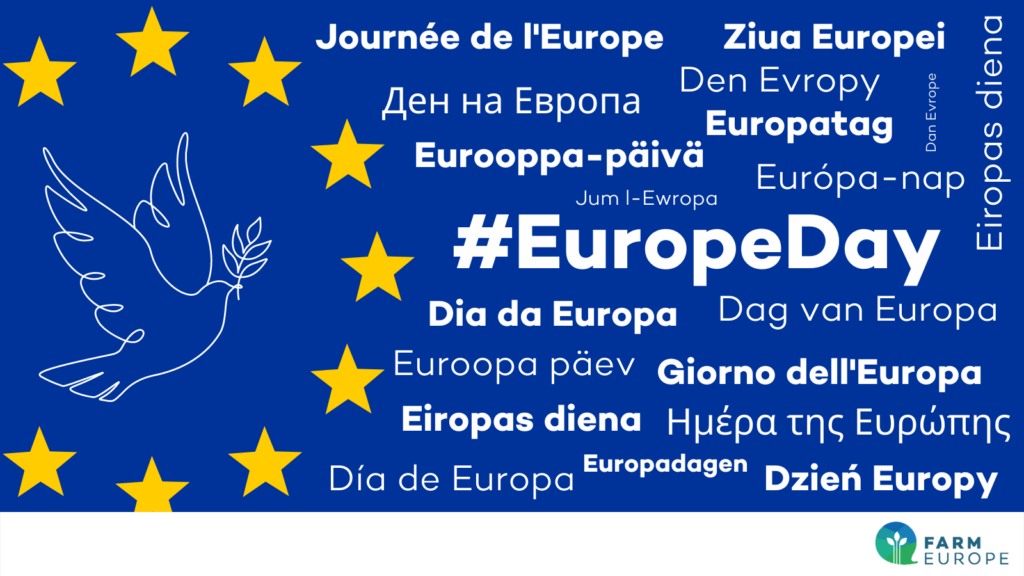After one year of activities, the Conference on the Future of Europe (CoFoE) reached its conclusions on the recommendations on the future steps the European Union will take in the world of tomorrow.
Farm Europe welcomes both the open and democratic process that led to the conclusions as well as the balanced and forward looking conclusions that emerged from the conference in relation to the agriculture and food systems. These recommandations will certainly be an important contribution to the future sustainable food systems strategy.

The concepts of sustainability, circularity, fairness, affordability, investments in research and innovation in the field of agriculture and nutrition policies are anchored in the recommandations and largely confirm the relevance of the current EU Treaties when it comes to agriculture and the need for a strong Common Agricultural Policy that delivers on their expectations. The Conference advocates for a balanced approach promoting effective environment and climate friendly agriculture in the EU, showing openness to a wide range of solutions as long as they put Europe in a position to « produce more food with less whilst reducing emissions and environmental impact but still guaranteeing productivity and food security », which is the most challenging equilibrium to find for policy makers. The Citizens also call to step up the effort to achieve climate goals incentivising agricultural systems like « organic farming and sustainable agriculture » and to introduce a certification of carbon removals, based on robust, solid and transparent carbon accounting».
Regarding the use of chemical fertilisers and pesticides, the complexity of the topic is well reflected in the recommandations of the Citizens. They are calling to « significantly reduce the use of chemical pesticides and fertilisers, in line with the existing targets while still ensuring food security ». Citizens also want to address more specific topics such as plastic use in agriculture.
When it comes to the livestock sector, they call for « reasoned breeding and meat production with a focus on animal welfare and sustainability, focusing in particular on clear labelling and high standard and common norms for animal farming and transport.
In addition, the Conference also see the EU agricultural sector as an energy provider. It encourages the development of electric cars, but also underlines that « at the same time, it should invest in the development of other non-polluting technologies, such as biofuels and hydrogen for those vehicles whose electrification is difficult to achieve, such as boats and lorries ».
As far as health promotion, the reflection groups considers food -and diet- as a tool to improve health, approaching health from an holistic approach. Notably, the Conference rises the attention on the importance of education on the topic of food, diet, nutrition from an early age, as well as underlying the impacts of ultra-processed foods on health, proposing a tax on those products that have detrimental effects on health. The recommendations do not provide clear definition of ‘healthy diets’, and ‘healthy lifestyle’, leaving this to personal interpretation.
The CoFoE concluded that food production should be guided by the principles of sustainability, climate responsibility, affordability, safety, and social justice, while aiming at food security and to the safeguard of biodiversity and of ecosystems. Moreover, the Conference commits to ensure that all Europeans have access to education on healthy food and access to healthy and affordable food, as a building block of a healthy lifestyle. The round of talks proposes, in concrete to:
- Educate people about healthy habits from an early age
- Develop at EU level a standard educational program on healthy lifestyles
- Taxation on non healthy processed food
- Promotion of healthy, varied, and affordable food procurement
- Promote production methods that allow to produce more food with less
- Apply circular economy principles and fight food waste
- Reduce the use of chemical pesticides and fertilizers & invest in research
- Introduce carbon removal certification
- Improve the social side of farming, assuring high quality safety, health and working conditions
- Enforce animal welfare standards
- Improve transparency and communication to consumers
- Protect insects and pollinators
- Support reforestation, afforestation, enforce responsible forest management
- Ban single use plastics
- Protect water sources
Stakeholders from all across Europe and from all backgrounds — including Farm Europe — were consulted during the process. The Conference reached its conclusions in the fields of climate change and the environment, health, economy and social justice, the role of the EU in the world, education, democracy, migration, culture, digital transportations and the values, rights, rule of law and security.
O artigo foi publicado originalmente em Farm Europe.
